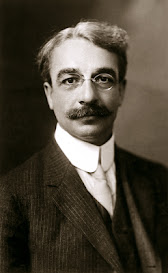Here is a fascinating record of the life of the Báb, Whom
Baha’u’llah refers to as “the King of the Messengers”. In the inside cover of
the book we read:
"In the middle of the nineteenth century Iran, then
remote from the West, was roused and convulsed by the appearance of the
Marty-Prophet, the Báb, Whose brief Ministry of six years (1844-50) ended in
His own martyrdom and that of thousands of His followers. The Báb was a
youthful merchant Who fulfilled wide expectation in The East and West by His
declaration that ‘He Whom God shall manifest” would soon arise to guide mankind
into a new epoch of spiritual civilization.
The Báb and His religion were observed at first hand by
Western diplomats – British, Russian, French, and Austrian, in particular –
whose official reports and accounts in books provide unparalleled data for the
study of the birth and rise of a faith which, in the words of a Cambridge
scholar, Edward Grandville Brown, 'may not impossibly win a place amidst the
great religions of the world'.
Mr. Balyuzi has made use of many official documents from
governmental records, and also cites material gathered from family archives,
accessible to him as a relative of the Báb. His illustrations include several
items from these archives."
In the forward section of the book, Hand of the Cause of God
Mr. Baluzi indicates that:
























